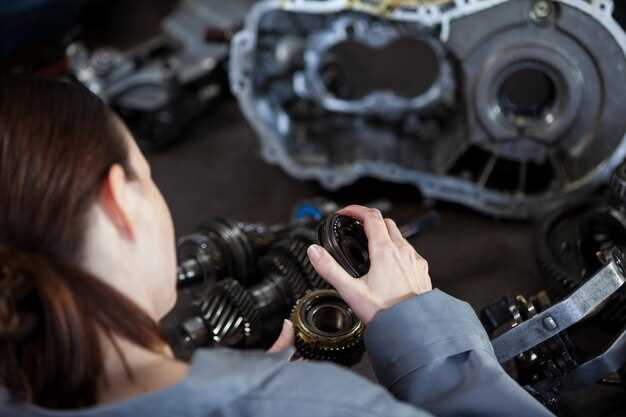
Your vehicle’s engine is its beating heart, and maintaining its health is crucial for both performance and longevity. Neglecting regular maintenance can lead to costly repairs that could have been easily avoided. Understanding the common pitfalls that lead to engine failure is essential for any car owner looking to save money and ensure their vehicle runs smoothly.
One of the primary causes of engine problems is inadequate lubrication. Regular oil changes are vital to keeping engine components well-lubricated and free of debris. Over time, oil degrades and loses its effectiveness, which can lead to increased friction, overheating, and eventually, engine damage. By adhering to the manufacturer’s recommended oil change intervals, you can significantly reduce the risk of engine complications.
Another critical factor is the condition of your cooling system. Overheating is a leading reason for engine breakdowns, often caused by a malfunctioning radiator, worn hoses, or a faulty thermostat. Regularly checking coolant levels and ensuring that the cooling system is functioning properly can prevent catastrophic engine failures down the road.
In addition to these preventive measures, it is essential to stay alert to unusual noises or changes in your vehicle’s performance. Addressing small issues early can prevent them from escalating into more significant, costlier repairs. Fostering a proactive approach to vehicle maintenance not only prolongs engine life but also enhances overall driving experience.
Regular Maintenance: Key Steps to Consider
Regular maintenance is essential for preventing costly engine repairs and ensuring the longevity of your vehicle. Below are key steps to consider:
1. Regular Oil Changes: Engine oil lubricates moving parts and reduces friction. Change the oil and oil filter according to your vehicle’s manufacturer recommendations, typically every 3,000 to 7,500 miles. Using the right oil type is crucial for optimal performance.
2. Inspect and Replace Air Filters: A clean air filter improves engine efficiency and fuel economy. Check the air filter every 12,000 miles, and replace it if it appears dirty. A clogged air filter can lead to poor engine performance.
3. Monitor Fluid Levels: Check engine coolant, transmission fluid, brake fluid, and power steering fluid regularly. Low fluid levels can result in severe engine damage. Top off fluids as needed, and schedule a flush and replacement when required.
4. Maintain the Cooling System: Overheating can cause significant engine issues. Ensure the cooling system is functioning by regularly checking hoses and radiator conditions. Replace the coolant periodically to prevent corrosion and scale buildup.
5. Check and Replace Spark Plugs: Spark plugs ignite the air-fuel mixture in the engine. Worn or dirty spark plugs can lead to misfires and decreased efficiency. Inspect them every 30,000 miles and replace them as specified by the manufacturer.
6. Monitor Tire Pressure and Condition: Proper tire maintenance affects fuel efficiency and handling. Check tire pressure monthly and visually inspect tires for signs of wear or damage. Rotate and align tires to promote even wear and extend their life.
7. Listen for Unusual Noises: Pay attention to any new sounds from the engine area, such as knocking, ticking, or grinding. These could indicate underlying issues that require immediate attention to prevent further damage.
8. Follow Manufacturer’s Service Schedule: Each vehicle has a service schedule outlining essential maintenance tasks. Adhering to this schedule is key to preventing engine problems and maintaining warranty coverage.
By implementing these regular maintenance steps, you can significantly reduce the risk of expensive engine repairs and ensure your vehicle operates efficiently.
Monitoring Engine Temperature and Oil Levels

Maintaining an optimal engine temperature and ensuring proper oil levels are crucial for the longevity and performance of your vehicle. Regular monitoring of these parameters can help prevent costly repairs caused by overheating or inadequate lubrication.
Engine Temperature: The engine temperature should be closely watched, as it directly affects the overall efficiency and operation of the engine. A sudden spike in temperature can indicate coolant issues, a malfunctioning thermostat, or a defective water pump. To prevent overheating, check the coolant levels regularly and ensure the radiator system is functioning properly. Installing a temperature gauge can provide real-time updates, allowing you to react promptly to any discrepancies.
Oil Levels: Oil is essential for lubricating the engine components and reducing friction. Low oil levels can lead to increased wear, overheating, and eventual engine failure. Regularly check the oil level using the dipstick and replenish it as necessary. It’s also important to follow the manufacturer’s recommendations for oil change intervals to maintain optimal engine performance. Consider using high-quality oil that meets your vehicle’s specifications, as this can enhance protection and efficiency.
By keeping a vigilant watch on both engine temperature and oil levels, you can significantly reduce the risk of unexpected breakdowns and expensive repairs. Incorporate these practices into your vehicle maintenance routine to ensure a reliable driving experience.
Identifying Warning Signs Early: What to Watch For

Recognizing early warning signs of engine trouble can save you from costly repairs down the road. One of the first indicators is unusual noises. If you hear knocking, tapping, or grinding sounds coming from the engine, it may signal issues such as low oil levels or internal damage.
Another significant sign is the presence of warning lights on your dashboard. The check engine light, for instance, can indicate various problems ranging from minor issues like a loose gas cap to serious faults in the engine system. Ignoring these lights can lead to more severe complications.
Watch for changes in engine performance, such as reduced power during acceleration, stalling, or rough idling. These symptoms can reveal underlying issues like fuel system problems or malfunctioning sensors. Additionally, pay attention to any unusual smells, such as burning oil or sweetened odors, which could indicate leaks or overheating.
Monitoring your engine temperature gauge is crucial as well. If your engine frequently runs hotter than usual, this might suggest a cooling system failure or thermostat issue. Lastly, keep an eye on your fuel economy. A sudden drop in mileage can signal engine inefficiencies that require immediate attention.




